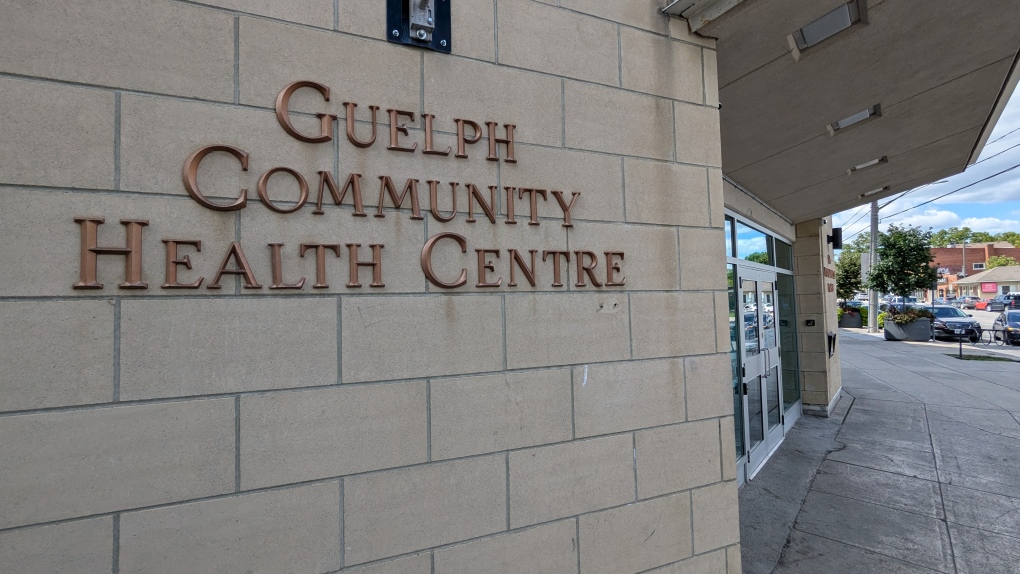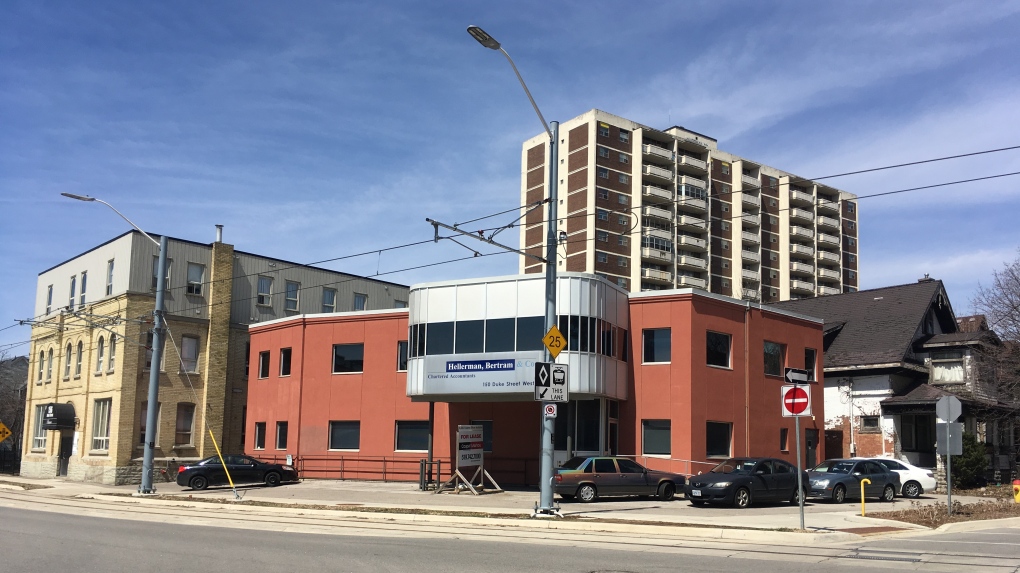Kitchener, Guelph drug consumption sites to close due to Ontario ban
The drug consumption sites in Guelph and Kitchener are set to close after the Ontario government announced a ban on these types of facilities, citing concerns over community safety.
As part of the new rules, any supervised drug consumption site within 200 metres of schools and daycare centres will be banned from operating.
The decision, effective by March 31, 2025, will lead to the closure of ten sites across Ottawa, Guelph, Hamilton, Thunder Bay, Kitchener, and Toronto.
Included are the sites at the Guelph Community Health Centre, located at 175 Wyndham St. N. in Guelph and the site at the Region of Waterloo Public Health and Emergency Services, located at 150 Duke St. W. in Kitchener. Once these sites close, the closest drug consumption site outside of the region will be in London.
The move is part of a broader strategy to address the rising crime rates near these sites, which the province claims have seen significantly higher incidents of violence and drug trafficking.
 The Guelph Community Health Centre is among the nine provincially-funded sites slated for closure by March 31, 2025. (Dan Lauckner/CTV News)“Communities, parents and families across Ontario have made it clear that the presence of consumption sites near schools and daycares is leading to serious safety problems,” said Sylvia Jones, Deputy Premier and Minister of Health in a media release Tuesday.
The Guelph Community Health Centre is among the nine provincially-funded sites slated for closure by March 31, 2025. (Dan Lauckner/CTV News)“Communities, parents and families across Ontario have made it clear that the presence of consumption sites near schools and daycares is leading to serious safety problems,” said Sylvia Jones, Deputy Premier and Minister of Health in a media release Tuesday.
“We need to do more to protect public safety, especially for young school children, while helping people get the treatment they need, which is why we’re taking the next step to expand access to a broad range of treatment and recovery services, while keeping kids and communities safe,” Jones added.
To further combat the addiction crisis, the province is investing $378 million in 19 new Homelessness and Addiction Recovery Treatment (HART) Hubs. These hubs, designed to provide comprehensive care including mental health services, addiction support, and housing, will add up to 375 supportive housing units, in addition to recovery and treatment beds.
Unlike the current consumption sites, HART Hubs will not offer supervised drug use or needle exchange programs but will focus on recovery and long-term stability.
The nine provincially-funded sites will be encouraged to submit proposals to transition to HART Hubs and will be prioritized by the province during the review process and could be eligible on average, for up to four times more funding under the HART Hubs model than they receive from the province as a consumption site.
The government’s new legislation, expected this fall, will also prohibit municipalities from establishing new consumption sites or participating in federal "safer" supply initiatives.
"I commend the provincial government for moving forward with a detailed plan to save lives, restore families and improve communities struggling with the stranglehold of addictions,” said Mayor of Guelph, Cam Guthrie in the release. “I am confident that the new HART Hub model, focused on recovery, will show the positive results cities have been desperately requesting for our most vulnerable citizens, not just in Guelph, but across Ontario."
Healthcare workers react
Those working in the healthcare sector are reacting to the province’s decision to close nine provincially funded supervised consumption sites and one privately funded site.
“Absolutely we’re concerned for the clients,” said Julie Kalbfleisch, director of communications at Sanguen Health Centre. “Those who access CTS are there for access to those services primarily.”
The Duke Street site is operated by the Sanguen Health Centre in partnership with Region of Waterloo Public Health. According to the facility, they have seen 53,000 client visits since October of 2019 and 1,500 last month alone.
 Regional council has unanimously approved the proposed safe consumption site at 150 Duke. St. W. (Dan Lauckner / CTV Kitchener)“The problems have gotten bigger,” Kalbfleisch said. “There is a gap. There are folks who are not ready to access treatment. This specialized healthcare keeps them alive in the interim.
Regional council has unanimously approved the proposed safe consumption site at 150 Duke. St. W. (Dan Lauckner / CTV Kitchener)“The problems have gotten bigger,” Kalbfleisch said. “There is a gap. There are folks who are not ready to access treatment. This specialized healthcare keeps them alive in the interim.
The facility will take a closer look into transitioning into a provincially funded HART Hub if they think it makes a positive contribution to the community. In the meantime, the plan is to continue providing their services until next March when doors will close for good.
“We will be asking those questions to figure out how we go forward without leaving a large group of people behind,” Kalbfleisch said.
In a media release issued Tuesday by The Registered Nurses’ Association of Ontario (RNAO), they said the planned closure of the sites could lead to overwhelmed emergency services and a spike in healthcare costs.
They also claim it “will result in increased deaths from the toxic drug supply and the spread of disease from unsafe needle sharing.”
“Nurses are enraged that we will see more preventable deaths. These numbers will increase because the Ford government has made it clear that people who use substances are disposable,” said RNAO President and NP Lhamo Dolkar in the release. “Supervised consumption sites save lives and provide evidence-based, life-saving services and comprehensive mental health support; you can’t help a dead person.”
RNAO reports that in 2023 alone, close to 3,800 people across the province died from an unregulated drug supply. While they did not provide specific 2024 figures, they reported an average of 10 people die per day from tainted drugs.
“The government’s ask for increased reporting of crime and loitering near remaining SCS sites addresses valid concerns yet fails to ask for critical reporting on the benefits of SCS in reducing death, illness and health costs,” RNAO said.
RNAO also claims the government’s legislation that will be introduced in the fall would “gut harm reduction programs in Ontario” and “would prevent municipalities from advocating for the decriminalization of illegal drugs for personal use.”
CTVNews.ca Top Stories

Quebec man, 81, gets prison sentence after admitting to killing wife with Alzheimer's disease
An 81-year-old Quebec man has been sentenced to prison after admitting to killing his wife with Alzheimer's disease.
Canada Post quarterly loss tops $300M as strike hits second week -- and rivals step in
Canada Post saw hundreds of millions of dollars drain out of its coffers last quarter, due largely to its dwindling share of the parcels market, while an ongoing strike continues to batter its bottom line.
'Immoral depravity': Two men convicted in case of frozen migrant family in Manitoba
A jury has found two men guilty on human smuggling charges in a case where a family from India froze to death in Manitoba while trying to walk across the Canada-U.S. border.
Prime Minister Trudeau attends Taylor Swift's Eras Tour in Toronto with family
Prime Minister Justin Trudeau is a Swiftie. His office confirmed to CTV News Toronto that he and members of his family are attending the penultimate show of Taylor Swift's 'The Eras Tour' in Toronto on Friday evening.
Trump supporters review-bomb B.C. floral shop by accident
A small business owner from B.C.'s Fraser Valley is speaking out after being review-bombed by confused supporters of U.S. president-elect Donald Trump this week.
Pat King found guilty of mischief for role in 'Freedom Convoy'
Pat King, one of the most prominent figures of the 2022 'Freedom Convoy' in Ottawa, has been found guilty on five counts including mischief and disobeying a court order.
Nearly 46,000 electric vehicles recalled in Canada over power loss risk
Nearly 46,000 electric vehicles from Kia, Hyundai and Genesis are being recalled in Canada over a potential power loss issue that can increase the risk of a crash.
Trump chooses Bessent to be Treasury secretary and Vought as top budget official
President-elect Donald Trump announced Friday that he'll nominate hedge fund manager Scott Bessent, an advocate for deficit reduction, to serve as his next treasury secretary. Trump also said he would nominate Russel Vought to lead the Office of Management and Budget.
Canada's tax relief plan: Who gets a cheque?
The Canadian government has unveiled its plans for a sweeping GST/HST pause on select items during the holiday period. The day after the announcement, questions remain on how the whole thing will work.


































